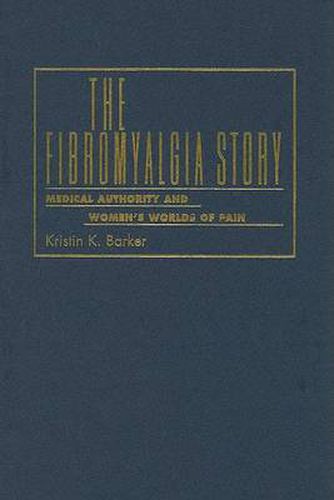Readings Newsletter
Become a Readings Member to make your shopping experience even easier.
Sign in or sign up for free!
You’re not far away from qualifying for FREE standard shipping within Australia
You’ve qualified for FREE standard shipping within Australia
The cart is loading…






More than six million Americans - most of them women - have been diagnosed with the controversial medical disorder fibromyalgia syndrome (FMS). Because of the absence of definitive physiological markers, a well-understood cause, or effective treatment, FMS is controversial. Many have questioned if FMS is a real illness or if women sufferers are modern-day hysterics. Amidst the controversy, millions of women live with their very real symptoms. Rather than taking sides in the heated FMS debate, Kristin Barker explains how FMS represents an awkward union between the practices of modern medicine and the complexity of women’s pain. Using interviews with sufferers, Barker focuses on how the idea of FMS gives meaning and order to women beset by troubling symptoms, self-doubt, and public skepticism. This book offers a fresh look at a controversial diagnosis, avoids overly simplistic explanations, and empathizes with sufferers without losing sight of medicine’s power over our lives.
$9.00 standard shipping within Australia
FREE standard shipping within Australia for orders over $100.00
Express & International shipping calculated at checkout
More than six million Americans - most of them women - have been diagnosed with the controversial medical disorder fibromyalgia syndrome (FMS). Because of the absence of definitive physiological markers, a well-understood cause, or effective treatment, FMS is controversial. Many have questioned if FMS is a real illness or if women sufferers are modern-day hysterics. Amidst the controversy, millions of women live with their very real symptoms. Rather than taking sides in the heated FMS debate, Kristin Barker explains how FMS represents an awkward union between the practices of modern medicine and the complexity of women’s pain. Using interviews with sufferers, Barker focuses on how the idea of FMS gives meaning and order to women beset by troubling symptoms, self-doubt, and public skepticism. This book offers a fresh look at a controversial diagnosis, avoids overly simplistic explanations, and empathizes with sufferers without losing sight of medicine’s power over our lives.